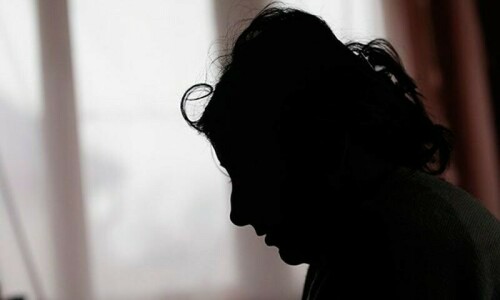KARACHI: Civil society organisations criticised the official launch of work on the twin nuclear power plants (K-2 and K-3) project on Thursday and vowed to continue their struggle against it, describing the entire process of the plan’s approval as a sham.
They argued that the Sindh Environmental Protection Agency (Sepa), which awarded approval to the project in June, had violated the law by holding the project’s public hearing at a restricted far-off place. Besides, none of the serious concerns raised at the public hearing were addressed, they said.
Work on the construction of one of the two nuclear power plants (K-2 of 1,100 megawatts) was launched by Prime Minister Nawaz Sharif during his visit to Karachi.
“Although a break came in our efforts, we are committed to the cause and plan to pursue the case legally,” said Karamat Ali, representing the Pakistan Institute of Labour Education and Research (Piler).
He added that a press statement highlighting concerns of civil society organisations over the project would be released on Friday followed by a meeting to draw up a strategy to take up the case further.
“You cannot hold a public hearing at Prime Minister House,” he said while explaining the point that the Sepa decision to hold the public hearing at the plant site on the outskirts of the city was an attempt to deprive many people of the opportunity to attend the hearing.
The concerns of experts and civil society organisations about the potential risks the project posed to Karachi, he said, were not imaginary.
“We have serious environmental and safety concerns and the government should direct the project proponent [the Pakistan Atomic Energy Commission], to adopt a credible mitigation strategy and share it with the public, if it cannot change the project’s location,” he said. The case, he added, was likely to be taken to the environmental tribunal after holding discussions with like-minded groups and individuals.
Arif Belgaumi, senior architect and social activist, who has been very vocal in the campaign against the nuclear power plant project, lambasted Sepa for openly supporting the project during the public hearing instead of playing the role of an independent and impartial environmental watchdog.
He also criticised what he described as public indifference to the project.
“Sepa is a useless body. It acts as a rubber stamp to approve all kinds of projects. It was highly disappointing to see that its director general was praising the project during the public hearing,” he said, regretting that though a lot of people campaigned against the project through the social media, a few turned up at the public hearing to actually show their opposition.
‘EIA report carries false, old data’
According to Mr Belgaumi, the environmental impact assessment (EIA) process that Sepa had to carry out on a court order was just an eyewash. “The EIA report had false information and contained old data. No satisfactory answer was given to our queries relating to the operation and safety of the reactor.
“On top of that, 80 per cent of the people who came to the public hearing comprised fishermen who had been promised non-technical jobs in the project. How could one call this meeting a public hearing?” he asked.
Saeed Baloch of the Pakistan Fisherfolk Forum regretted the government resolve to continue with the project that posed ‘serious hazards’ to the city of millions.
“In a country where we don’t have means to handle a flood situation, building a project with potential risks is like playing with fire. And that we happily do though other viable, cheaper and safer options are available,” he said.
Dr Abdul Hameed Nayyar, a physicist and nuclear activist who has also been at the forefront of the campaign against the $10 billion project, said he would be contacting his colleagues soon in Karachi to see how the case could be taken up further.
“Our concerns relating to the close proximity of the project to Karachi, untested reactor design, lack of a proper evacuation plan in case of radiation leakage and plant’s safety, haven’t changed,” he said.
He said the PAEC contention that the plant design was 100pc safe was against all common sense.
There were what he called ‘institutional interests’ which had kept the project going since 2004 when it had been conceived with the PAEC plan to generate 8,800MW by 2030.
“There is also a show of defiance on part of Pakistan that hasn’t been allowed to import nuclear technology or parts, while India has been permitted to do so by the US under a deal,” he said, arguing that the Chinese offer of giving 60pc loan in setting up the project also made the project viable for Pakistan.
Dr Nayyar strongly suggested use of wind power for electricity generation and said the technology was cheaper than solar energy and attracting huge investments the world over.
“There are many examples where countries have established wind power plants to generate thousands of megawatts just within a year. Last year China set up wind power plants of 2,2000 MW,” he said, recommending the Pakistan government to take help from the neighbouring country in this regard.
Published in Dawn, August 21st, 2015
On a mobile phone? Get the Dawn Mobile App: Apple Store | Google Play















































